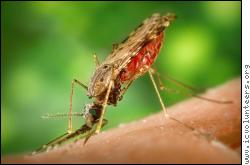Motivations of cybervolunteers in an applied distributed computing environment: MalariaControl.net as an example
03 Febrero 2010 © First Monday, Volume 15, Number 2 - 1 February 2010 Research laboratories and scientific modeling projects often lack computing power to run complex simulation models solely with in-house computing resources. One form of volunteer computing uses an interface called the BOINC software platform that allows hundreds of thousands of volunteers worldwide to participate in projects such as SETI@home and MalariaControl.net, searching for extraterrestrial intelligence or contributing to research linked to malaria control. These volunteers are effectively acting as cybervolunteers, meaning volunteers who, in part or entirely, use a computer or the Internet for their volunteer activity. We conducted a study on the motivations of MalariaControl.net and BOINC cybervolunteers. Are volunteers only donating CPU power or are they making other contributions? Why do they participate in projects such as MalariaControl.net? The aim of this paper is to present results obtained, formulate useful conclusions from them, and identify patterns in the motivations of volunteers that may be useful to other distributed computing projects, in particular, and the understanding of cybervolunteerism, in general. Volunteers living in 67 countries participated in our enquiry. We found that a majority of them indicated either solidarity and/or a cause as their main deciding factor for getting involved. This trend was stronger for MalariaControl.net than for general BOINC volunteers. Volunteers remained involved if they felt useful. The study clearly suggests that the recognition of cybervolunteers is important: volunteers invest their time in a project without financial compensation, but not for free. The paper also summarizes technical and communication suggestions made by volunteers with regards to MalariaControl.net and BOINC. For full article, see First Monday, February edition 2010 Publicado: 2010-3-11 Actualizado: 2010-4-11 | |||









